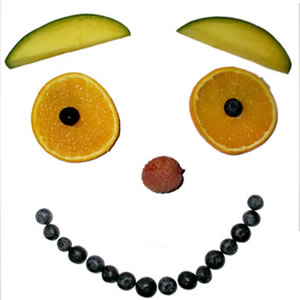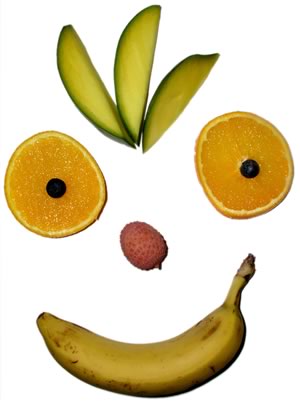Eating Healthy While Staying on a Budget
 “To keep the body in good health is a duty… otherwise we shall not be able to keep our mind strong and clear.”
“To keep the body in good health is a duty… otherwise we shall not be able to keep our mind strong and clear.”
– Buddha
The statement, “You are what you eat”, may NOT be taken very seriously by the majority of people today.
However, as times goes on that statement is starting to show its truth. More and more people are becoming concerned with eating healthy while staying on a budget.
It is good to hear that people are starting to awaken and are becoming more concerned about the foods that they are allowing to enter their body.
I decided to write this post so that I can share the ways we accomplish eating healthy and still manage to pay the bills.
I wish that I could give one easy solution for everyone in regards to their dilemmas on healthy eating, but it is a little more challenging than you might think. I understand that NOT all of you live in the same countries, and due to that… some of these options may not be available where you live.
Nevertheless, I am sure you will still find the other information in here helpful and insightful when it comes to learning how to eat more healthy and not going broke.
Organic Vs Non-Organic
Before we can move onto saving money, we first must have a discussion on the health benefits of going organic verses the cost of organic produce. Most of you should be aware of the organic produce labels that have been showing up in the markets for quite some time. If not, you probably need to get out more! 🙂
There are many studies that prove that eating organic food is a lot healthier for your body. The old saying “An apple a day keeps the doctor away”, might not remain true if your apple is covered in 56 different pesticides.
Well… what is the likeliness of your apple having pesticides on it if it is not organic anyways? There is a very good chance, EWG tests showed that 92% of all the apples they tested contained two or more pesticides on them. In this situation eating an apple a day might HURT you more than help you.
It has been my experience that you can tell a difference in the taste with organic produce verses non-organic. This may correlate with the higher nutrient content and less nitrates in the organic foods as well as the taste of pesticide residue that may still be lingering in non-organic produce.
However, our bodies sense of taste is there for a reason, so if organic food taste better and is suppose to be healthier for you, then it appears to be a win-win situation. Although, we left out one variable, the cost of organic foods.
How could we leave out cost when everyone obviously has a food budget they have to stick to each month? Organic foods do have a heftier price tag on them and this is a little hard to ignore. However, it could be argued that since locally organic produce has MORE nutrients in them than non-organic, you can get by with eating less of the same produce and get more quality nutrients.
Even so, everyone still has to have enough calories, especially if you are on a high calorie diet. This is when going by the EWG’s list of The Dirty Dozen and The Clean 15 comes in handy. By using these lists you can limit your cost by substituting some of the organic produce with items on the Clean 15 list. Therefore reducing your total bill and still keeping the pesticides you are eating down to a minimum. Let’s go check out these lists.
The Dirty Dozen List
The dirty dozen seeks to provide a valuable shopping list you can take with you shopping. This helps you to know which produce you should always buy organic. The list is updated yearly and the produce on the list does change, so it is good to keep up to date with it. For that reason, I’ve provided links to make sure you can get the newest list.
This list is numbered from the ones with the most pesticides to the least pesticides:
The items on this dirty dozen list are the ones you should NEVER buy in their conventional form. Stick to buying this produce in its organic form, or if they are unavailable as such, then choose an alternative that is organic or that is on the clean 15 list.
Here is a list of some of the most common produce that should be bought organically:

This Sure Looks Healthy!
- Apples
- Strawberries
- Grapes
- Celery
- Peaches
- Spinach
- Sweet bell peppers
- Nectarines – imported
- Cucumbers
- Potatoes
- Cherry tomatoes
- Hot peppers
- Kale / collard greens
- Summer squash
The Clean 15 List
It is time to move onto the clean 15. Keep in mind that just because it is labelled the clean 15 does NOT mean it is free from pesticides. The list simply states that these 15 produces have the lowest levels of pesticides, therefore putting you at less risk for ingesting large amounts of toxic pesticides.
Please note, I believe although they are labelled “clean”, it doesn’t guarantee that they have as much nutrients as the organic version. It is true that they have less pesticides than the ones on the dirty dozen list, but tests prove that their nutrient value doesn’t compare to their organic cousins. Here I quote the findings in PubMed (a government site), this is what they found:
“Organic crops contained significantly more vitamin C, iron, magnesium, and phosphorus and significantly less nitrates than conventional crops.
There were non-significant trends showing less protein but of a better quality and a higher content of nutritionally significant minerals with lower amounts of some heavy metals in organic crops compared to conventional ones.”
See what I mean when I say you can get more nutrition by eating healthy smaller quantities of organic than conventional produce? This means you DO NOT have to buy as much to get the same nutrient value compared with the conventional types. Nonetheless, if you do get conventional off the clean 15, at least you can sleep better knowing that they are not massively coated in pesticides.
Keep in mind that this list is numbered by the least clean to the most clean in regards to amounts of pesticides. Here is a list of some of the most common cleanest produce you can buy conventional:
- Sweet corn
- Onions
- Pineapples
- Avocados
- Cabbage
- Sweet peas – Frozen
- Papayas
- Mangos
- Asparagus
- Eggplant
- Kiwi
- Grapefruit
- Cantaloupe
- Sweet potatoes
- Mushrooms
Before reaching for a non-organic item on the dirty dozen list, you can now look and see if there is a suitable substitute that you can use instead. This can allow you to reduce the amount of money you are spending on buying everything that is organic.
I would still recommend buying as much as you can afford organically to make sure you are getting all the nutrients and vitamins, through healthy eating, you need to live a healthy lifestyle.
When looking at buying produce it is helping to take this in consideration. Here I quote “EWG”, this is their explanation on following their guidelines:
“If you choose 5 servings of fruits and vegetables a day from EWG’s Clean 15 rather than the Dirty Dozen, you can lower the volume of pesticides you consume daily by 92 percent, according to EWG calculations. You’ll also eat fewer types of pesticides.
Picking 5 servings of fruits and vegetables from the 12 most contaminated would cause you to consume an average of 14 different pesticides a day. If you choose 5 servings from the 15 least contaminated fruits and vegetables, you’ll consume fewer than 2 pesticides per day.”
If you want a printable version of this list that you can take with you to the store you can download it: right ->> here.
This guide is also available in friendly smart phone apps that you can get:
->> Android
->> Iphone
->> Windows
Cleaning Non-Organic Produce
By now you probably realize that it is best to buy most things organically. However, depending on the place you live and the season, it is possible that organic is just not an option.
Here are a few tips on limiting yourself to the exposure of pesticides by properly cleaning your produce. By NO means are these methods going to eliminate all the pesticides from the produce, but they can help reduce a decent amount of them.
- Use a mixture of 1 part apple cider or white vinegar to 3 parts water. You can even store this in a spray bottle for easy usage. Some produce, such as lettuce, might need to be soaked in the solution to make sure the whole item gets treated.
- Use two spray bottles. In the first one, get 3% food grade hydrogen peroxide and mix in 3 parts peroxide and 1 part water. For the second bottle use 3 parts apple cider or white vinegar and 1 part water. Spray produce with the peroxide solution first and then spray it with the vinegar solution and wait a minute or so. Then just rinse it with water and you are ready to roll. (This is a little more effective in pesticide reductions)
- Use a mixture of ½ cup water, ½ apple cider or white vinegar, ½ tablespoon of baking soda, juice from ½ a lemon. You can put this mixture in a spray bottle and spray your produce with it. Leave the solution on for 3-5 minutes and then rinse off.
* Note that while using method one is by far the easiest one and will help a little, method 2 and 3 are by far the most effective for eliminating pesticide residues.
Free-Range Organic Meats and Eggs
We have now reached the next topic dealing with free-range organic meats and eggs. I feel as long as we are talking about eating healthy, things such as: the place where the meat was raised, what they are feed and how they are treated makes a difference in the quality of the product.
This is a touchy subject and some might NOT agree with my ‘ethical outlook’ on how animals should be treated. Regardless if this is the case or not, you should still be concerned about the quality of the meats and eggs you are eating.

Now Those are Some Happy Cows!!!
I have for a while been for the humane treatment of farm animals. Factory farms tend to treat their animals in an inhumane way, simply because these companies can cut costs and make more profit. Of course they argue that by making the animals go through ‘hell’ and by mistreating them they are doing us all a “favour” by making meat and eggs cheaper. In some ways this can be true.
However, by looking at the negative aspects of these types of meats and eggs, it leads me to believe that they DO NOT seem to be doing us a favour at all. In fact, I am pretty sure the end consumer is the last thing they have on their minds.
I actually have a theory, that if free-range organic meats and eggs were more of the ‘norm’, it would result in the cost of them being a whole lot lower. This is as simple as supply and demand.
We have an abundance of nasty, poorly treated, chemical and antibiotic infused meats on the market in the US. It only makes sense that it would be cheaper than the rare high quality versions.
If the table was to turn and factory farm meats and eggs start making way for more free-ranged organic versions, then I am sure the price will start to come down a little.
Let’s take a look at why their is a higher nutritional value of it being organic and free-ranged. Animals have to eat and most factory farmed animals are not fed the best foods nor do they live in the best conditions. Some of the reasons why these decrease the nutritional value of the food include the following:
- They eat foods that their bodies were not designed to consume, such as corn or leftover animal by-products.
- Their foods contain those same pesticides as mentioned above, as well as herbicides, fungicides and chemical fertilizers.
- They are kept in close, cramped quarters, do not get any exercise and are often threatened by illness and disease.
- Due to illnesses they are continuously on antibiotics and other drugs to keep them “healthy” or as healthy as they can be under these conditions.
As you might expect, all these things that are happening to the animals in turn get passed onto us when we consume them. This might be the reason why antibiotics have become less effective on people than in comparison with the past.
The other benefits of eating healthy organic grass fed, free range meats is that they contain higher levels of omega-3’s than the factory farm versions. Actually the factory farms contain high levels of omega-6’s due to the types of food they get fed.
As you may know, omega-3’s play a huge roll in proper functioning of the brain, hormone levels, heart health, and are great at keeping inflammation down.
High amounts of omega-6’s on the other hand, can increase inflammation levels in the body and has been linked to an increased risk of getting many diseases such as: cardiovascular disease, obesity, rheumatoid arthritis, and cancer just to name a few.
Basically, you have a higher risk of developing some of these inflammatory diseases when your diet consists of too many omega-6’s and not enough omega-3’s.
Now that we learned about the health benefits of eating free range organic eggs and meat, let’s take a look at where you might find these types of meat and eggs for the cheapest price in your area.
Places to Shop
I am aware that it is possible that the resources available to me, might not be available to you depending on where you live. However, it is possible you may have different resources available to you that I might not have here. My goal here is to try to give you helpful tips that can solve your shopping problems, so that it is easier to keep eating healthy while remaining on your monthly budget.
Sometimes the places you shop can be the problem as to why things cost so much and are lower in quality.
My brother and I have picked two different places to shop at. Who knows, it’s very possible that we may add another in the future. Typically, we go to a healthy grocery store called “The Co-op” and buy good local free range meats, such as: chicken and grass fed beef. We also get there: organic grass fed eggs from local farms, organic produce and other items that are not sold at your typical grocery store.
Then we use “Lowes Foods” or a “Harris Teeter” grocery store for the remaining items to buy a mixture of organic and clean 15 fruits and vegetables, wild caught sock-eye salmon and other wild caught fish, frozen organic fruits and veggies and whatever else we need. Here are some good recommendations for trying to find the best places to buy your food at:
- Earthfare
- Wholefoods
- Company shops
- Local farmer’s markets
- Local farms
- Growing your own food
Going to your local farmer’s market or local farms can save you a large amount of money on your groceries. You are in fact, cutting out the middle man (grocery store) that is selling the food to you at one conventional location, of course with fee involved for their services. You can even ask the farmers (the ones who actually grow it) how they grow their food and if they use chemical fertilizers or pesticides.
You might be pleasantly surprised that their produce might be very close to being organic but they might not have wanted to fork out the extra cash to get the certification saying it’s organic. The other good thing about shopping locally is that your produce is fresher. It is fresher because it DID NOT have to take a road trip across the country or world to get to your grocery store. Therefore giving you more vitamins and nutrients at a cheaper cost.
Here are a couple nice websites where you can search for farms or farmer’s markets near your area so you can purchase some of your groceries.
Now We’re Finally Eating Healthy
 I hope I answered some of your questions and concerns on how to continue eating healthy and still be able to pay your bills. I would make it a goal to at least try to include as many fruits and vegetables as you can afford in their organic versions. This will insure that you are receiving an adequate amount of nutrients that these produces provide.
I hope I answered some of your questions and concerns on how to continue eating healthy and still be able to pay your bills. I would make it a goal to at least try to include as many fruits and vegetables as you can afford in their organic versions. This will insure that you are receiving an adequate amount of nutrients that these produces provide.
If you thought there was little to NO difference between organic and conventional products before reading this, I HOPE the veil has been lifted from your eyes. Seems like common sense to me, that if pesticides are designed to kill things, then maybe we should NOT be eating them or they might kill us too.
If you found this post informational and beneficial, please show some love by commenting or sharing it with your family and friends. Let’s us spread truth to those that want to listen!
Keep eating healthy,
Until next time,
Cory Cook

Thanks Cory for this great article. Quite enlightening & educational.
Quick questions:
In addition to these great lifestyle & health tips are there supplements you could recommend for daily intake for maximum health. What type of vitamins would you recommend for instance or any other supplements for that matter.
Your advice would be much appreciated.
Thanks again man you & your brother are really doing great stuff.
Thanks for the comment Ibrahim, glad the post helped!
That is a good question. When it comes to supplements for staying healthy, I recommend keeping it some what basic. I think the best approach is juicing organic vegetables either daily or a couple times a week, as the main source of vitamins.
However, at the very least, I recommend taking a good multivitamin, fish oil, vitamin d3 and maybe a good pro-biotic. I use the Garden of Life – Vitamin Code multivitamin. For the fish oil, I use Carlson Labs Super Omega-3 Gems. Vitamin D, I take Carlson Labs Solar D Gems Natural Vitamin D3, 2000 IU. Garden of Life makes a good pro-biotic as well.
If you are working out, it wouldn’t hurt to supplement with a good whey protein. I blend mine with frozen berries, a banana and almond milk. Although, not necessary you could just eat solid foods, however, it is an easy way to get a quick post workout meal in. I recommend, Warriors Whey as a great quality whey protein that is processed naturally.
Note, I am not a doctor or a certified nutritionist, so these are just my personal recommendations for basic well being. Each person has their own unique requirements that another might not have, the only way to know for sure is to go to a doctor and have them check your blood for vitamin deficiencies.
Thanks Cory for reply.
If one were to decide to do juicing everyday or 3-4 times a week what vegetables should one juice to make sure you have sufficient vitamins, fish oils & all the other stuff. I guess what i’m trying to say is, do you stick to a particular regime of vegetables all the time or do you just do any vegetables.
Thanks once again bro!
No Problem Ibrahim,
Good question. You should go for variety and mix it up. There really isn’t one vegetable that has it all, so that is why you should use a diverse amount of different vegetables.
I recommend reading this article on our site called, Juice fasting. It can provide you with some more insight on this topic. Also you might want to get this book called, Get Juiced for a list of different juice recipes to help you create a whole bunch of quality juices to help benefit your health.
Fish oils, you basically can only get from either eating fish or seafood’s or by taking a fish oil supplement.
Best of luck to you bro! 🙂